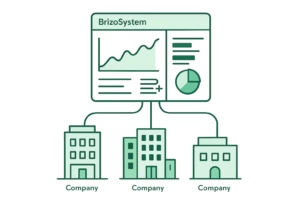BrizoSystem
-

Why Mid-Sized Companies Need Consolidation Tools
—
For many mid-sized companies, financial reporting starts out simple. A few legal entities, a manageable volume of transactions, and spreadsheets that seem to “do the job.” But growth changes everything.…
-

Onerous Contract: When a Contract Becomes a Financial Burden
—
in AccountingNot all contracts generate value. Sometimes, changing circumstances turn a previously profitable agreement into a costly obligation. In accounting, such situations are addressed through the concept of an Onerous Contract.…
-

Automated Financial Consolidation Explained
—
Financial consolidation is meant to deliver clarity — a single, reliable view of group performance.Yet for many finance teams, consolidation remains one of the most time-consuming, error-prone parts of the…
-

Negative Pledge Clause: Protecting Lenders Without Taking Collateral
—
in AccountingWhen companies borrow money, lenders want assurance that their position won’t be weakened later. One common way to achieve this—without requiring immediate collateral—is through a Negative Pledge Clause. Although it…
-

Cloud vs On-Premise Consolidation Tools: What Mid-Sized Companies Should Know
—
As mid-sized companies grow — adding subsidiaries, multiple currencies, and increasingly complex reporting requirements — the choice of consolidation tool becomes critical. A key decision is whether to adopt a…
-

Off-Balance-Sheet Financing: What It Is and Why It Matters
—
in AccountingNot all financing arrangements appear directly on a company’s balance sheet. Some obligations are structured in a way that keeps certain assets or liabilities outside the balance sheet, while still…
-

Top Features Needed for Multi-Entity Financial Reporting
—
As organizations grow beyond a single legal entity, financial reporting quickly becomes more complex. Multiple subsidiaries, currencies, charts of accounts, and intercompany transactions introduce challenges that traditional single-entity reporting tools…
-

Understanding the Current Ratio
—
in AccountingLiquidity is one of the most important indicators of a company’s financial health. Even profitable businesses can fail if they are unable to meet short-term obligations when they fall due.…
-

BrizoSystem × Zoho Books: Seamless Data Connectivity for Smarter Group Reporting
—
in NewsFor finance teams using Zoho Books, getting accurate, timely group reports has often meant one thing: manual data extraction.CSV exports, spreadsheet clean-ups, mapping exercises, and repeated reconciliation — every reporting…
